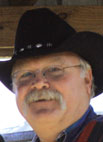
Dale and Amy Hill bought 60 acres with an additional 40 rented acres next to the farm in Fayetteville, Ark., where Dale was raised in order to expose their children to a lifestyle that teaches responsibility on all levels. Dale still works with his dad and is the fourth generation on the land while Dale and Amy’s four sons are the fifth generation.
Family income, however, is derived from Hill Electric, their electrical contracting company for new builds and renovation, as well as Buzz Electric, a residential repair service. Amy said, “Between working with Dale in the office and managing a household with four boys, I am the hub and have to balance everything from transportation to supper and only get to work outside when really needed, which is not nearly as much as I would like.”
The Hills run a small commercial cattle operation with 20 head of mixed Angus and dairy cows bred by a Balancer bull, a cross between a Gelbvieh and Angus. Dale occasionally AI’s a few dairy heifers for the commercial herd selecting semen from bulls that produce low birth weight calves. Dale said, “We have spring and fall calves and sell them 45 days after weaning and two rounds of shots. The calves by then are accustomed to grain with the bull calves already castrated.”
The heart of the Hill farming operation started with purchasing and showing dairy heifers. The Hills have a precise process. They purchase heifers and show them subsequently breeding them through embryo transfer and finally selling them. Then they use ET with the heifer calves in addition to others they purchase and use following the same procedures. Dale explained money in the show dairy is made by flushing two to three Holstein or Jersey cows a year for eggs since show heifers are most expensive when they are small and selling purchased heifers after they calve does not guarantee a profit since they become dairy cows and dairy farm cows rarely sell for as much as a show heifer.
In order to prevent the boys from competing against each other in the seven heifer show classes, the Hills have five different dairy breeds: Holstein, Jersey, Brown Swiss, Ayrshire and Milking Shorthorn. Two years ago the boys also started showing cows as well because the boys are older and able to handle larger animals.
The boys are responsible for the care of their animals as well as halter breaking and practicing with them for the show ring. After purchasing the first two or three heifers for each son, the boys have two bank accounts: a savings account and a checking account. The purpose of the savings account is to accumulate profits from their individual show dairy operations to serve as seed money for purchasing more heifers and to eventually pay for most of their college educations.
The checking account serves as a truck fund since Dale and Amy expect the boys to buy their own vehicles. The income for this account comes from bottle feeding bull calves with milk from their father’s cows. The bull calves are from their heifers or purchased and sold when 2 years old. The process is labor intensive because the cows must be milked twice a day and the calves fed twice a day. Originally Conner, now 15, had to do this every day by himself. Conner said, “Sometimes that was really rough but worth it. I skipped a year and that was a bad mistake because I made no money for my truck.” Nonetheless, Conner earned enough to purchase a 2008 champagne-colored four-door Chevy Silverado when he was 14. Trey, age 11, added, “If I want a truck, I have to do this. The good part is now we can alternate days so no one has to milk and feed every day.” Then Sawyer, who is 9, added, “The hardest thing is bottle feeding the bull calves because they pull the bottles through the fence and then I have to jump over to get it.”
The boys’ responsibilities don’t end with their calves. They are also responsible for helping both their father and their grandfather with harvesting hay and silage for both farms. The Hills put up 700 tons of wheat silage per year and 800 5’ x 6’ bales, enough for both operations. A typical year with rain provides three cuttings. Eric, 13, chimed in, “Yes, but I remember one year when we even got four cuttings.”
The Hills’ lifestyle is very busy with the boys having a myriad of responsibilities outside of school. Dale said, “I can’t emphasize enough to them how important a strong sense of responsibility and good work ethics are. Amy and I are doing everything we can so they will have successful lives in whatever paths they choose.”







